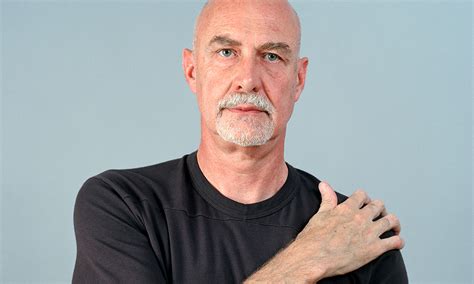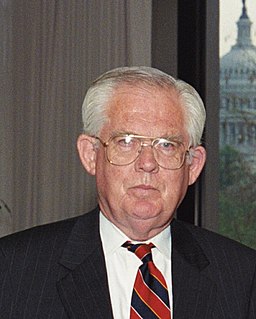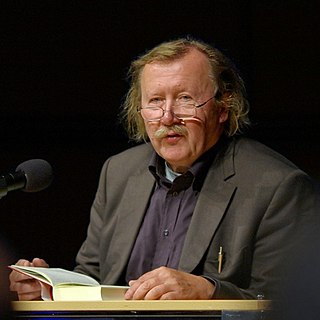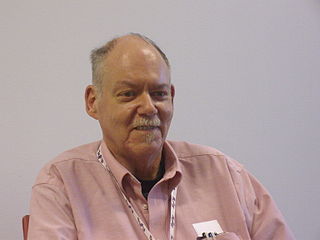Top 642 Trivial Quotes & Sayings - Page 11
Explore popular Trivial quotes.
Last updated on April 15, 2025.
Now, I know it’s hard, particularly for our young people, to choose to observe the Sabbath day when athletic teams on which they so much want to participate regularly schedule games on Sunday. I too know it seems trivial to many who are in need of just a few items on the Sabbath to quickly stop at a convenience store to make a Sunday purchase. But I also know that remembering to keep the Sabbath day holy is one of the most important commandments we can observe in preparing us to be the recipients of the whisperings of the Spirit
[Rhyme is] but the invention of a barbarous age, to set off wretched matter and lame Meter; ... Not without cause therefore some both Italian and Spanish poets of prime note have rejected rhyme, ... as have also long since our best English tragedies, as... trivial and of no true musical delight; which [truly] consists only in apt numbers, fit quantity of syllables, and the sense variously drawn out from one verse into another, not in the jingling sound of like endings, a fault avoided by the learned ancients both in poetry and all good oratory.
Death is the door from the superficial life, the so-called life, the trivial. There is a door. If you pass through the door you reach another life - deeper, eternal, without death, deathless. So from so-called life, which is really nothing but dying, one has to pass through the door of death; only then does one achieve a life that is really existential and active - without death in it.
We no longer think of chairs as technology, we just think of them as chairs. But there was a time when we hadn't worked out how many legs chairs should have, how tall they should be, and they would often "crash" when we tried to use them. Before long, computers will be as trivial and plentiful as chairs and we will cease to be aware of the things. In fact I'm sure we will look back on this last decade and wonder how we could ever have mistaken what we were doing with them for "productivity"
But the fact is that when wine is taken in moderation, it gives rise to a large amount of breath, whose character is balanced, and whose luminosity is strong and brilliant. Hence wine disposes greatly to gladness, and the person is subject to quite trivial exciting agents. The breath now takes up the impression of agents belonging to the present time more easily than it does those which relate to the future; it responds to agents conducive to delight rather than those conducive to a sense of beauty.
My overall approach toward art is to remain as open as possible in front of the world, to always be curious, not to be afraid to experiment, and have a sense of self-criticism and a general criticism toward the surrounding. Also, trying to make a difference between serious research and pure gag! And making as few compromises as possible toward doing things that might not be accepted by the majority of society, even if this dominant society is the one which is ruling the art world. To keep this fundamental idea, even if it's a bit trivial: to have the desire to transform the world.
I am not a religious person, nor do I have any regrets. The war took care of that for me. You know, I was brought up strictly kosher, but I - it made no sense to me. It made no sense to me what was happening. So nothing of it means anything to me. Nothing. Except these few little trivial things that are related to being Jewish. ... You know who my gods are, who I believe in fervently? Herman Melville, Emily Dickinson - she's probably the top - Mozart, Shakespeare, Keats. These are wonderful gods who have gotten me through the narrow straits of life.
It was understood that they shared the same thresholds--the same inexhaustible appetite for wasting time, for discussing lofty ideas, for dissecting trivial things, for driving to nowhere in particular, for listening to music, for talking about books, for obsessing over pop culture, but mostly for laughing, talking, and simply being together. There was nothing one could say that the other would find too cruel or too kind. And on those rare occasions when they did tire of each other, they needed only go a day without talking before they yearned to reconnect.
And somewhat as in blind night, on a mild sea, a sailor may be made aware of an iceberg, fanged and mortal, bearing invisibly near, by the unwarned charm of its breath, nothingness now revealed itself: that permanent night upon which the stars in their expiring generations are less than the glinting of gnats, and nebulae, more trivial than winter breath; that darkness in which eternity lies bent and pale, a dead snake in a jar, and infinity is the sparkling of a wren blown out to sea; that inconceivable chasm of invulnerable silence in which cataclysms of galaxies rave mute as amber.
GOOSE, n. A bird that supplies quills for writing. These, by some occult process of nature, are penetrated and suffused with various degrees of the bird's intellectual energies and emotional character, so that when inked and drawn mechanically across paper by a person called an "author," there results a very fair and accurate transcript of the fowl's thought and feeling. The difference in geese, as discovered by this ingenious method, is considerable: many are found to have only trivial and insignificant powers, but some are seen to be very great geese indeed.
If we're open to it, God can use even the smallest thing to change our lives... to change us. It might be a laughing child, car brakes that need fixing, a sale on pot roast, a cloudless sky, a trip to the woods to cut down a Christmas tree, a school teacher, a Dunhill Billiard pipe...or even a pair of shoes. Some people will never believe. They may feel that such things are too trivial, too simple, or too insignificant to forever change a life. But I believe. And I always will.
In our own time we have seen domination spread over the social landscape to a point where it is beyond all human control. Compared to this stupendous mobilization of materials, of wealth, of human intellect, of human labor for the single goal of domination, all other recent human achievements pale to almost trivial significance. Our art, science, medicine, literature, music and charitable acts seem like mere droppings from a table on which gory feasts on the spoils of conquest have engaged the attention of a system whose appetite for rule is utterly unrestrained.
We allowed you a charade of trivial freedoms in order to avoid making those impositions on you that are in the end both the training ground and proving ground for true independence. We pronounced you strong when you were still weak in order to avoid taking part in the long, slow, slogging effort that is the only route to genuine maturity of mind and feeling. Thus, it was no small anomaly of your growing up that while you were the most indulged generation, you were also in many ways the most abandoned to your own meager devices by those into whose safe-keeping you had been given.
Coca-Cola remains emblematic of the best and worst of America and Western civilization. The history of Coca-Cola is the often funny story of a group of men obsessed with putting a trivial soft drink "within an arm's reach of desire." But at the same time, it is a microcosm of American history. Coca-Cola grew up with the country, shaping and shaped by the times. The drink not only helped to alter consumption patterns, but attitudes toward leisure, work, advertising, sex, family life, and patriotism.
How I envy those clerks who go by to their offices in the morning! There's the day's work cut out for them; no question of mood and feeling; they have just to work at something, and when the evening comes, they have earned their wages, and they are free to rest and enjoy themselves. What an insane thing it is to make literature one's only means of support! When the most trivial accident may at any time prove fatal to one's power of work for weeks or months. No, that is the unpardonable sin! To make a trade of an art! I am rightly served for attempting such a brutal folly.
Imagine a life-form whose brainpower is to ours as ours is to a chimpanzee’s. To such a species, our highest mental achievements would be trivial. Their toddlers, instead of learning their ABCs on Sesame Street, would learn multivariable calculus on Boolean Boulevard. Our most complex theorems, our deepest philosophies, the cherished works of our most creative artists, would be projects their schoolkids bring home for Mom and Dad to display on the refrigerator door.
If you read the biographies of people who have written good books, you often see the point where they suddenly come into themselves, and those weeks in the spring of 1997 were when I came into myself as a writer. They feel like some of the best weeks of writing I’ll ever have. The discovery that I could write better about something as trivial as an ordinary family dinner than I could about the exploding prison population of the United States, and the corporatization of American life, and all the other things I’d been trying to do, was a real revelation.
There is a breeze blowing. I see it in the deep discontent that is being voiced with the threadbare state of the evangelical world, with its empty worship, its market-driven superficiality, and its trivial thought. It is a breeze blowing toward better, deeper, more honest things. I suspect that it is the Holy Spirit who is blowing, that this is his breeze, and that these leaves that are shaking are the signs of better things to come within an evangelical faith that is thus being reformed. Let us all pray that it is so!
In spite of their obvious differences, folk art and popular art have much in common; they are easy to understand, they are romantic, patriotic, conventionally moral, and they are held in deep affection by those who are suspicious of the great arts. Popular artists can be serious, like Frederick Remington, or trivial, like Charles Dana Gibson; they can be men of genius like Chaplin or men of talent like Harold Lloyd; they can be as uni versal as Dickens or as parochial as E.P. Roe; one thing common to all of them is the power to communicate directly with everyone.
To an ever greater extent out experience is governed by pictures, pictures in newspapers and magazines, on television and in the cinema. Next to these pictures firsthand experience begins to retreat, to seem more and more trivial. While it once seemed that pictures had the function of interpreting reality, it now seems they have usurped it. It therefore becomes imperative to understand the picture itself, not in order to uncover a lost reality, but to determine how a picture becomes a signifying structure of its own accord.
A few hundred years ago, perhaps 85 or even 90 percent of humanity lived below a standard of living that today only 40 or 45 percent fail to reach. But at that earlier time only part of this poverty could have been eradicated, and this at substantial cost not only to the pleasures of the affluent, but also to their well-being and to human culture. In our time, nearly all severe poverty could be eradicated at a cost to the affluent that is truly trivial.
Our government has become too responsive to trivial or ephemeral concerns, often at the expense of more important concerns or an erosion of our liberty, and it has made policy priorities more dependent on where TV journalists happen to point their cameras. . . . As a nation we have lost our sense of tragedy, a recognition that bad things happen to good people. A nation that expects the government to prevent churches from burning, to control the price of bread or gasoline, to secure every job, and to find some villain for every dramatic accident, risks an even larger loss of life and liberty.
Avoid trivial pursuits. You are a child of God, destined for glory, and called to do great things in His Name. Do not waste your life on hobbies, sports, and other recreational pursuits. Do not throw away the precious moments of your life on entertainment, movies, and video games. Though some of these things can properly have a 'small place' in the Christian's life, we must be careful not to give undue attention to temporal and fruitless activities. Do not waste your life. Employ the time of your youth in developing the character and skills necessary to be a useful servant of God.
In truth, philosophy is the mode of thought shaped by the most radical form of prejudice: the passion of being-in-the-world. With the sole exception of specialists in the field, virtually everyone senses that anything which offers less than this passion play remains philosophically trivial. Cultural anthropologists suggest the appealing term 'deep play' for the comprehensively absorbing preoccupations of human beings. From the perspective of a theory of the practising life we would add: the deep plays are those which are moved by the heights.
No religion I ever encountered made any sense. None are consistent. Most gods are megalomaniacs and paranoid psychotics by their worshippers' description. I don't see how they could survive their own insanity. But it's not impossible that human beings are incapable of interpreting a power so much greater than themselves. Maybe religions are twisted and perverted shadows of truth. Maybe there are forces which shape the world. I myself have never understood why, in a universe so vast, a god would care about something so trivial as worship or human destiny.
Each person decides in early childhood how he will live and how he will die... His trivial behavior may be decided by reason, but his important decisions have already been made: what kind of person he will marry, how many children he will have, what kind of bed he will die in... It is incredible to think, at first, that man's fate, all his nobility and all his degradation, is decided by a child no more than six years old, and usually three... (but) it is very easy to believe by looking at what is happening in the world today, and what happened yesterday, and seeing what will happen tomorrow.
Our intellectual powers are rather geared to master static relations and that our powers to visualize processes evolving in time are relatively poorly developed. For that reason we should do (as wise programmers aware of our limitations) our utmost to shorten the conceptual gap between the static program and the dynamic process, to make the correspondence between the program (spread out in text space) and the process (spread out in time) as trivial as possible.
There is no doctrine more fundamental to our work than the Atonement of Jesus Christ. At every appropriate opportunity, testify of the Savior and of the power of His Atoning sacrifice. Use scriptures that teach of Him and why He is the perfect pattern for everyone in life.4 You will need to study diligently. Do not become so absorbed with trivial things that you miss learning the doctrine and teachings of the Lord. With a solid, personal doctrinal foundation, you will be a powerful source for sharing vital truths with others who desperately need them.
Now when the historic religions give trivial answers to these very tragic questions of our day, when an evangelist says, for instance, we mustn't hope for a summit meeting, we must hope in Christ without spelling out what this could mean in our particular nuclear age. This is the irrelevant answer, when another Evangelist says if America doesn't stop being selfish, it will be doomed. This is also a childish answer because nations are selfish and the question about America isn't whether we will be selfish or unselfish, but will we be sufficiently imaginative to pass the Reciprocal Trade Acts.
The television screen, so unlike the movie screen, sharply reduced human beings, revealed them as small, trivial, flat, in two banal dimensions, drained of color. Wasn't there something reassuring about it! -- that human beings were in fact merely images of a kind registered in one another's eyes and brains, phenomena composed of microscopic flickering dots like atoms. They were atoms -- nothing more. A quick switch of the dial and they disappeared and who could lament the loss?
Interesting, isn't it, that even though more than two and a half decades have passed since the sexual revolution brought women a new measure of sexual freedom, there's still no word in the language that doesn't reek with pejorative connotation to describe a woman who has sex freely. Since language frames thought and sets its limits, this is not a trivial matter. For without a word that describes without condemning, it's hard to think about it neutrally as well. When we say the words 'promiscuous woman,' therefore, it's a statement about her character, not just her sexual behavior.
The woodchopper reads the wisdom of the ages recorded on the paper that holds his dinner, then lights his pipe with it. When we ask for a scrap of paper for the most trivial use, it may have the confessions of Augustine or the sonnets of Shakespeare, and we not observe it. The student kindles his fire, the editor packs his trunk, the sportsman loads his gun, the traveler wraps his dinner, the Irishman papers his shanty, the schoolboy peppers the plastering, the belle pins up her hair, with the printed thoughts of men.
The next day brought more visitors. Sarah was eating a simple luncheon with Charis, Ariel, and Guinevere and was experiencing for the first time in her life the pleasure of talking freely with other girls she trusted. It wasn't that they talked about anything of importance. Indeed, most of their conversation was hopelessly trivial- Mordecai would have shaken his head sadly over such frivolity, Sarah reflected with an inward smile. But to talk so openly, and to laugh so unrestrainedly, was somehow far more significant than any single thing that was said.
It is possible to be a fan of reality TV, talent shows and bubblegum pop and still have a brain. You will also see that a great many people know perfectly well how silly and camp and trivial their fandom is. They do not check in their minds when they enter a fan site. Judgement is not necessarily fled to brutish beasts, and men have not quite lost their reason. Which is all a way of questioning whether pop-culture hero worship is really so psychically damaging, so erosive of cognitive faculties, so corrupting of the soul of mankind as we are so often told.
The impulse to confession almost always requires the presence of a fresh ear and a fresh heart; and in our moments of spiritual need, the man to whom we have no tie but our common nature, seems nearer to us than mother, brother, or friend. Our daily familiar life is but a hiding of ourselves from each other behind a screen of trivial words and deeds, and those who sit with us at the same hearth, are often the farthest off from the deep human soul within us, full of unspoken evil and unacted good.
Old age is the fourth stage. By the time one reaches this stage of his journey, he must have discovered that the joys available in this world are trivial and fleeting. He must be equipped with the higher knowledge of spiritual joy, available through delving into the inner spring of Bliss. Through his experiences, his heart must have softened and be filled with compassion. He has to be engrossed in promoting the progress of all beings without distinction. And he must be eager to share with others the knowledge he has accumulated and the benefit of his experiences.
As the Hindu gods are 'immortal' only in a very particular sense - for they had born and they die - they experience most of the great human dilemmas and often seem to differ from mortals in a few trivial details... and from demons even less. Yet they are regarded by the Hindus as a class of beigns by definition totally different from any other; they are symbols in a way that no human beign, however 'archetypal' his life story, can ever be. They are actors playing parts that are real only for us; they are masks behind which we see our own faces.
The problem of reconciling human suffering with the existence of a God who loves, is only insoluble so long as we attach a trivial meaning to the word "love", and look on things as if man were the centre of them. Man is not the centre. God does not exist for the sake of man. Man does not exist for his own sake. "Thou hast created all things, and for thy pleasure they are and were created." We were made not primarily that we may love God (though we were made for that too) but that God may love us, that we may become objects in which the divine love may rest "well pleased".
Even those who specialize in the history of philosophy often ignore the political and cultural context, and the natural world in which their philosophers were philosophizing. This has consequences both trivial and important. If you systematically read the last fifty years of the major journals in our discipline you would be amazed at the amount of redundancy. Most of this is unacknowledged because most of us know so little about the history of our discipline and even the subfields in which we work.
The German system is way less fair than it is expected to be, and the difference is becoming bigger. The private system, with its privilege to pay doctors and hospitals better, is basically putting the whole system at jeopardy, because many first-class hospitals and first-class physicians are wasting their time on trivial cases of privately insured and are no longer accessible for the difficult cases from the public system, despite [the fact] that the hospitals and also the education of those professionals is paid for by public money.
I must perish in this deplorable folly. Thus, thus, and not otherwise, shall I be lost. I dread the events of the future, not in themselves, but in their results. I shudder at the thought of any, even the most trivial, incident, which may operate upon this intolerable agitation of soul. I have, indeed, no abhorrence of danger, except in its absolute effect-in terror. In this unnerved-in this pitiable condition-I feel that the period will sooner or later arrive when I must abandon life and reason together, in some struggle with the grim phantasm, FEAR.
That wind. I see it's blowing now. Furtive but commanding, it has dictated every move we've ever made. My mother felt it, and so do I - even here, even now - as it sweeps us like leaves into his backseat corner, dancing us to shreds against the stones. V'la l'bon vent, v'a l'joli vent. I though we'd silenced it for good. But the smallest thing can wake the wind@ a word, a sign, even a death. There's no such thing as a trivial thing. Everything costs; it all adds up until finally the balance shifts and we're gone again, back on the road, telling ourselves - well maybe next time









































